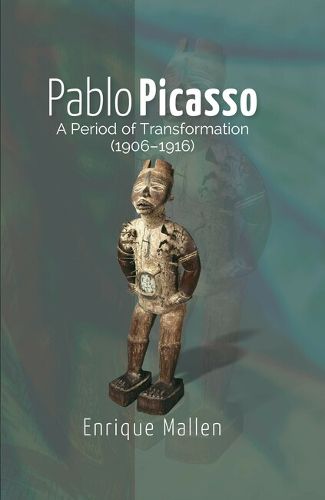Readings Newsletter
Become a Readings Member to make your shopping experience even easier.
Sign in or sign up for free!
You’re not far away from qualifying for FREE standard shipping within Australia
You’ve qualified for FREE standard shipping within Australia
The cart is loading…






Exactly when Matisse and Picasso first met is open to debate. Their earliest encounter may have taken place during the Matisse retrospective at Galerie Druet right before the 1906 Salon des Independants. The latter marked the first time all the Fauves exhibited together. The centerpiece was Matisse's monumental Le bonheur de vivre. Leo Stein bought the painting while the Salon was still running, regarding it as "the most important work of our time." This opinion undoubtedly annoyed Picasso. Jealousy of the other man's success goaded him to greater innovations. In his view, the new art would have to match the sense of endless discovery that science and technology were offering. The 1900 "Exposition Universelle" had already shown the latest marvels in engineering. If painting wanted to keep the public's attention, instead of merely reproducing what the eye saw, it had to generate its own reality on the surface of the canvas, a reality more vivid than, and bearing only the mostcursory resemblance to, anything found in nature. Matisse was also a catalyst in that he was the one who introduced Picasso to African sculptures. Max Jacob recalls: "Matisse took a black, wooden statuette from a table and showed it to Picasso. It was the first piece of Negro wooden art. Picasso held onto it all evening. The next morning, when I arrived at the studio, the floor was strewn with sheets of paper, and on each sheet was drawn the head of a woman; all of them were more or less the same: one eye, an oversized nose attached to the mouth, and a lock of hair on the shoulders. Cubism was thus born" (cited in Janine Warnod, Washboat Days [New York: Grossman Publishers Warnod, 1972, p. 128]).
$9.00 standard shipping within Australia
FREE standard shipping within Australia for orders over $100.00
Express & International shipping calculated at checkout
Exactly when Matisse and Picasso first met is open to debate. Their earliest encounter may have taken place during the Matisse retrospective at Galerie Druet right before the 1906 Salon des Independants. The latter marked the first time all the Fauves exhibited together. The centerpiece was Matisse's monumental Le bonheur de vivre. Leo Stein bought the painting while the Salon was still running, regarding it as "the most important work of our time." This opinion undoubtedly annoyed Picasso. Jealousy of the other man's success goaded him to greater innovations. In his view, the new art would have to match the sense of endless discovery that science and technology were offering. The 1900 "Exposition Universelle" had already shown the latest marvels in engineering. If painting wanted to keep the public's attention, instead of merely reproducing what the eye saw, it had to generate its own reality on the surface of the canvas, a reality more vivid than, and bearing only the mostcursory resemblance to, anything found in nature. Matisse was also a catalyst in that he was the one who introduced Picasso to African sculptures. Max Jacob recalls: "Matisse took a black, wooden statuette from a table and showed it to Picasso. It was the first piece of Negro wooden art. Picasso held onto it all evening. The next morning, when I arrived at the studio, the floor was strewn with sheets of paper, and on each sheet was drawn the head of a woman; all of them were more or less the same: one eye, an oversized nose attached to the mouth, and a lock of hair on the shoulders. Cubism was thus born" (cited in Janine Warnod, Washboat Days [New York: Grossman Publishers Warnod, 1972, p. 128]).